Activities is a separate AtroCore tool, that is used to display changes of the entity records made by user and system activity.
Activities display can be enabled or disabled for each entity separately. To enable the Activities for any entity, go to Administration > Entities. Select the entity for which you want to enable Activities, then uncheck the 'Disable Activities' box if you want the Activities panel to be displayed on the Record Details page, and/or uncheck the 'Disable action logging' box if you want user actions on the records of this entity to be logged.
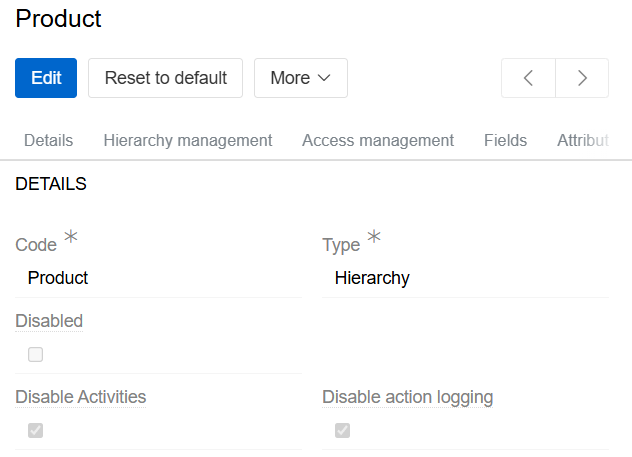
AtroCore supports the following types of activities entries:
- Notes – messages assigned to the current user by other system users, as well as his own messages posted in the Activities, irregardless of the assignee.
- Updates – notifications about changes in the fields (attributes) of the user-related entries.
- Discussions – threads where all users can participate.
User Activity
By default, all user- and system-related activity records are displayed in chronological order. If a post is edited, the date of the edit is added and the post moves up:
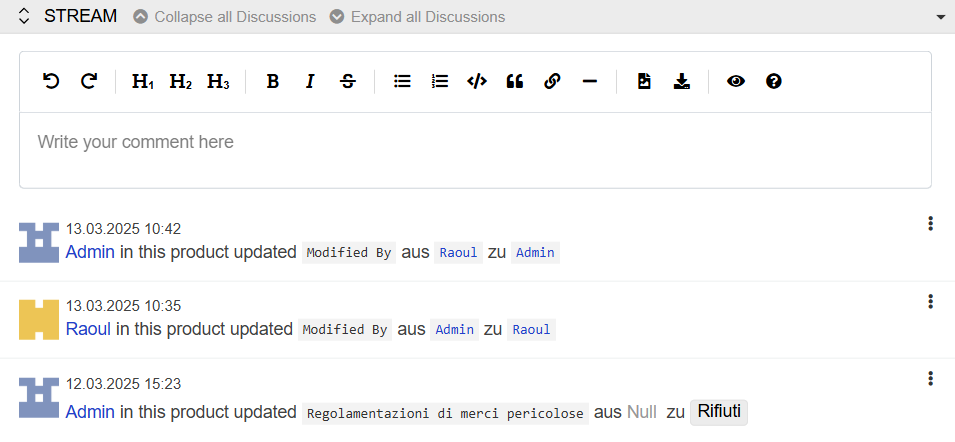
When other users make changes in your user-related entity records or address activities posts to you, you will be informed about it via the Notifications pop-up. If more than one value or type of a text, string, HTML field or attribute is changed, all changes are displayed in one post:
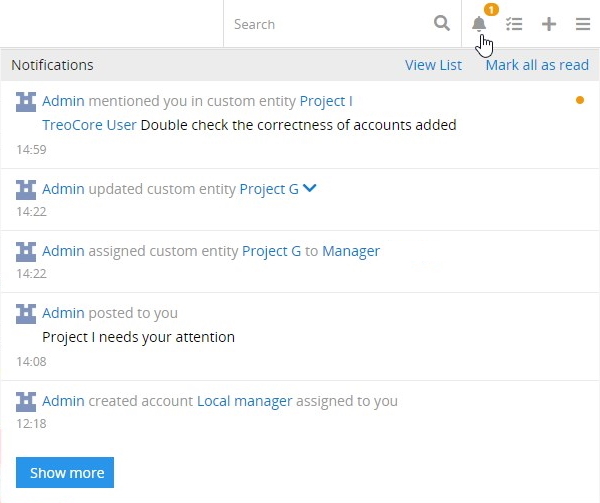
Creating a Post
To add a new post on the activities page, place the cursor in the text box and enter the desired message:

You can also attach a file (or multiple files) to your post by clicking the attachment button and selecting the desired files. Click the Post button – your message will appear on top of the activities list with all its details:

Managing Posts
By default, posts and updates from the user activity can only be removed via the corresponding option from the pop-up menu:

To complete the operation, you will need to confirm your decision in the pop-up that appears:

User added posts can not only be removed, but also edited. For this, click the Edit option in the single record actions menu and make the desired changes in the editing pop-up that appears:
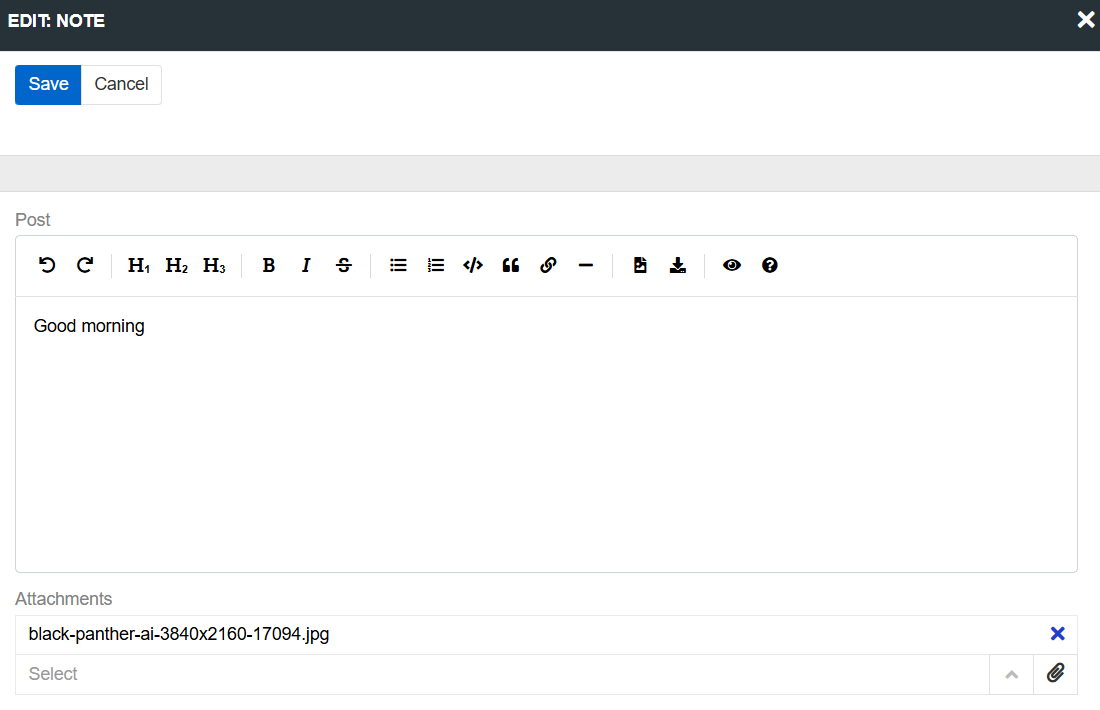
Creating a Discussion
Users can either create a discussion from scratch or convert a post into one. Once a discussion has been started, any user with access to the activities can participate by posting messages to it. Messages in a discussion are displayed in order from first to last, but a discussion is not raised in the activities panel whenever new messages appear:
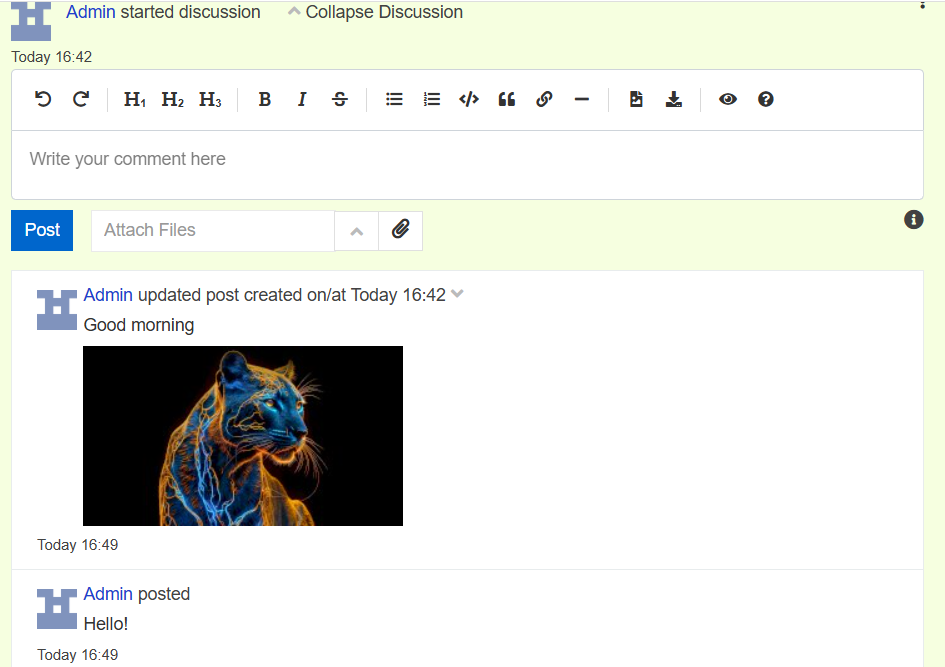
System Activities Records
System records are displayed on the Activities panel on the detail view page of the corresponding entity record:
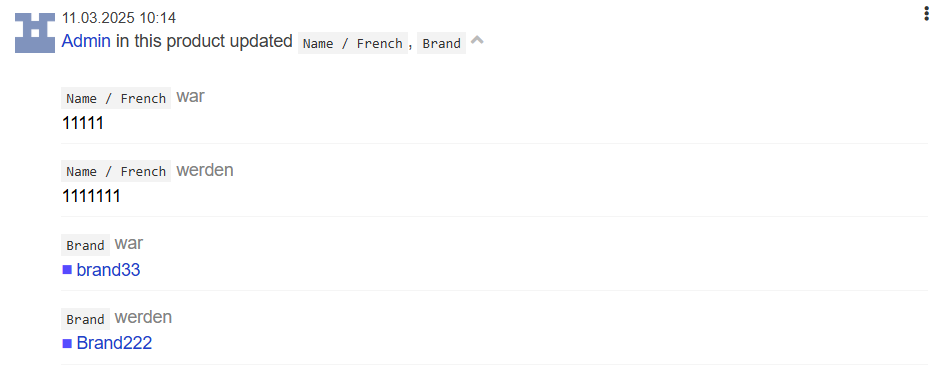
Tracking of fields (attributes) is enabled in almost all entities by default. To disable it, select option
Disable Activitiesin the entity manager.
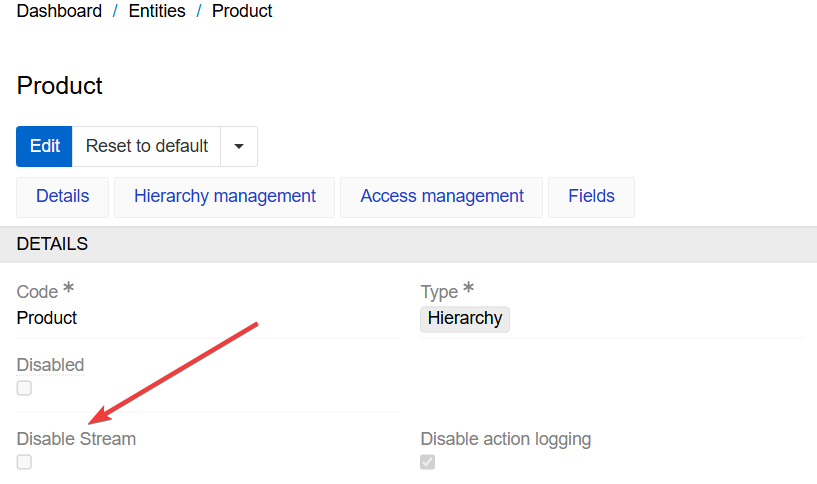
The Activities displays changes in all fields (attributes) of the entity. It contains information about who made the changes, the previous and new values of the field (attribute). If a change occurs in a field of the relationship type, it is displayed in the Activities of both entities. For example, if you add a new Category to a Product, information about this will appear in the Activities in the Product entity and in the Category entity.
Use the filter buttons to filter the activities records by their type correspondingly:
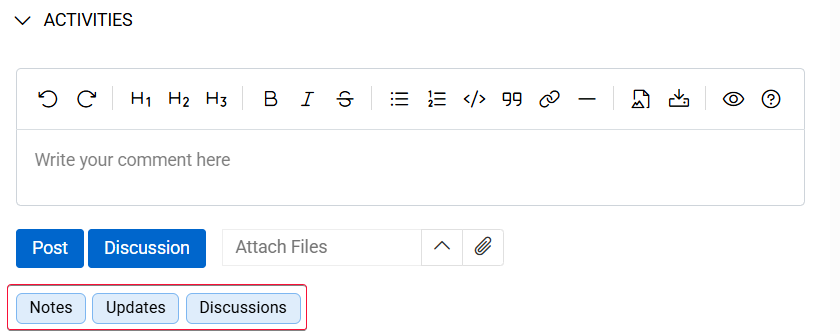
Access to the Activities is provided for each role at the entity level. To allow the user to view changes, select Administration/Roles, than select the role you need, click on Edit button and select the entity for which you want to configure permissions. To be able to edit permissions for the particular entity, access must be enabled for it.
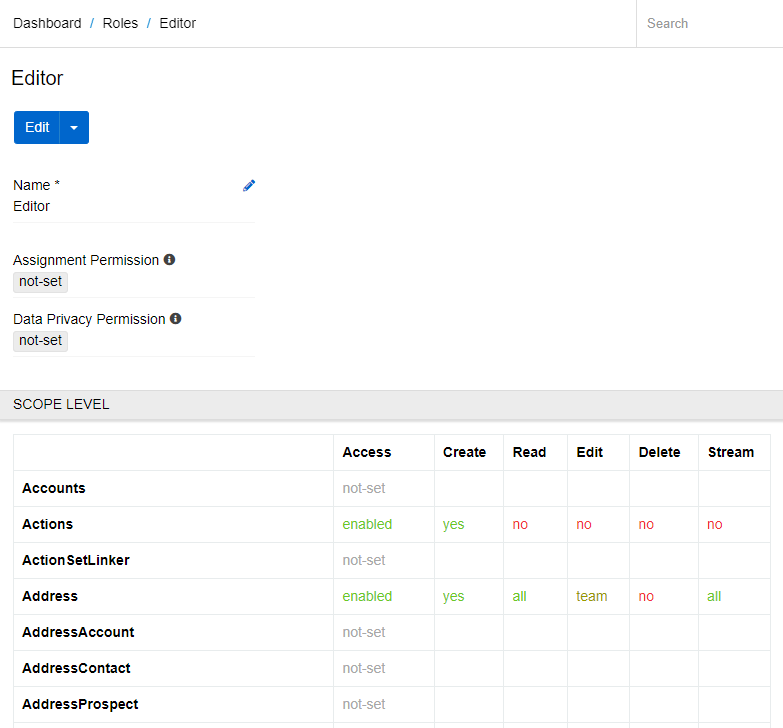
Only administrators can remove change history records from the Activities panel by selecting the desired entry and choosing the Delete option from its single record actions menu.

Beware that this action is irreversible.